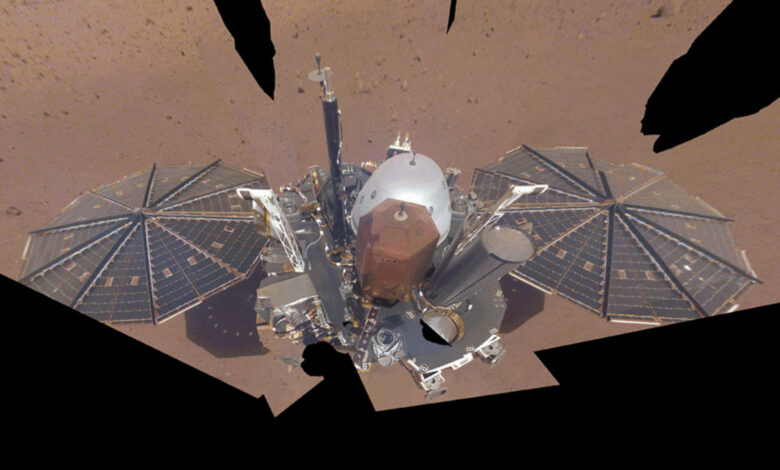
Water exists on Mars, according to a team of geophysicists, and not just as ice on its poles or as vapor in its atmosphere. The scientists have found evidence of liquid water deep in its outer crust, based on their analysis of data provided by NASA’s Mars Insight Lander. Specifically, they analyzed four years’ worth of ground motions recorded by the lander’s seismometer. By looking at seismic velocities, or how fast seismic waves travel on the planet, they were able to determine the materials that the waves moved through. What they found was that Mars’ mid-crust has fractured igneous rocks saturated with liquid water.
One of the scientists involved in the study, Prof Michael Manga from the University of California, Berkeley, told the BBC that they implemented the same techniques used “to prospect for water on Earth, or to look for oil and gas.” He said his group’s findings can answer the question of where all the water on Mars had gone, because features on the planet’s surface showed that it had lakes and rivers around three billion years ago. While there’s a theory that most of that water was lost to space, scientists have challenged that idea in recent years. One study by Caltech and NASA JPL published in 2021 found data that most of that water is still trapped in the planet’s crust.
The scientists involved in this newer study, published in PNAS, were only able to analyze seismic velocity data taken from underneath the lander. However, they believe that similar underground water reservoirs exist all over the planet, and they estimate that there’s enough liquid water under the surface to form a layer across Mars that’s half a mile deep. Manga told the the BBC that “much of our water is underground and there’s no reason for that not to be the case on Mars too.”
While the team’s findings could be taken as good news for space agencies and private companies looking to visit and even form human colonies on the planet, it won’t be easy reaching Mars’ water reservoirs. They’re located around 7 to 12.5 miles below the surface, which won’t be easy to reach even on our planet. “Drilling a hole 10km (6 miles) deep on Mars — even for [Elon] Musk — would be difficult,” Manga said, adding that “without liquid water, you don’t have life.”
Source link





